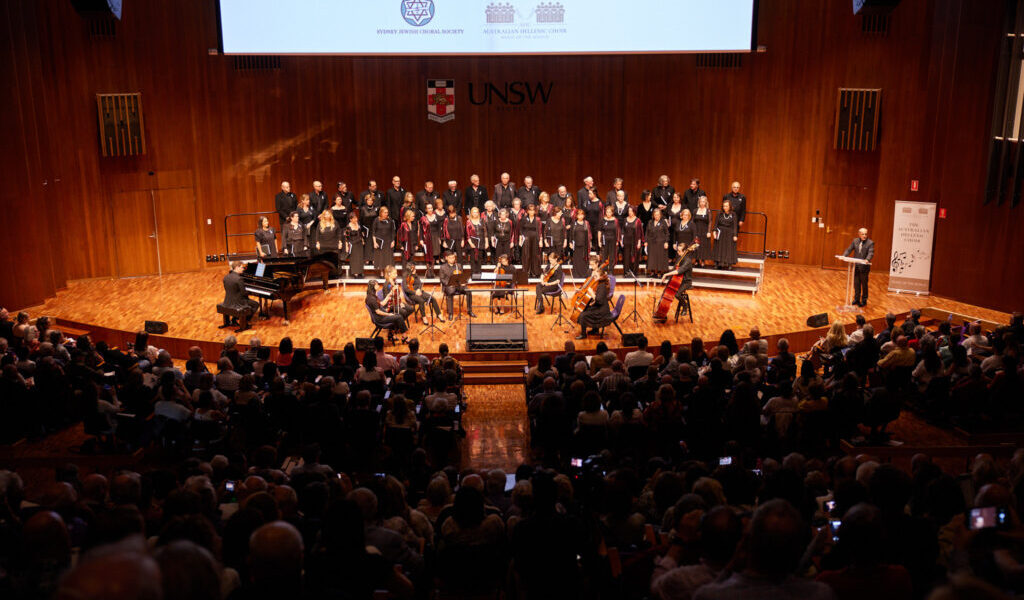As the noted theologian and writer Patrick Comerford reminds us, the word Holocaust is derived from the Ancient Greek ὁλόκαυστος (holokaustos), which incorporates the words ὅλος (‘whole’) and καυστός (‘burnt’). It has come to be synonymous with the Nazi genocidal calamity before and during World War II.
Dance Me to the End of Love with a Burning Violin
The Jewish choir sang a number of songs with beautiful harmonies that resonated throughout the auditorium. The most stirring was Leonard Cohen’s 1984 song, ”Dance Me to the End of Love”.

According to Vic Alhadeff, the MC and also a non-executive Director of SBS and prominent member of the Sydney Jewish Community, the legendary musician and writer was inspired by poignant imagery from the Holocaust that he remembered from his childhood days.
The lyrics of the song commence with:
Dance me to your beauty with a burning violin
Dance me through the panic till I'm gathered safely in
Lift me like an olive branch and be my homeward dove
Dance me to the end of love
Dance me to the end of love
Leonard Cohen actually recalled that in some of the death camps musicians dressed in striped prison uniforms were pressed to play musical instruments, including a “burning violin”, while their fellow prisoners were being killed and burned.
Dancing to the end of existence.
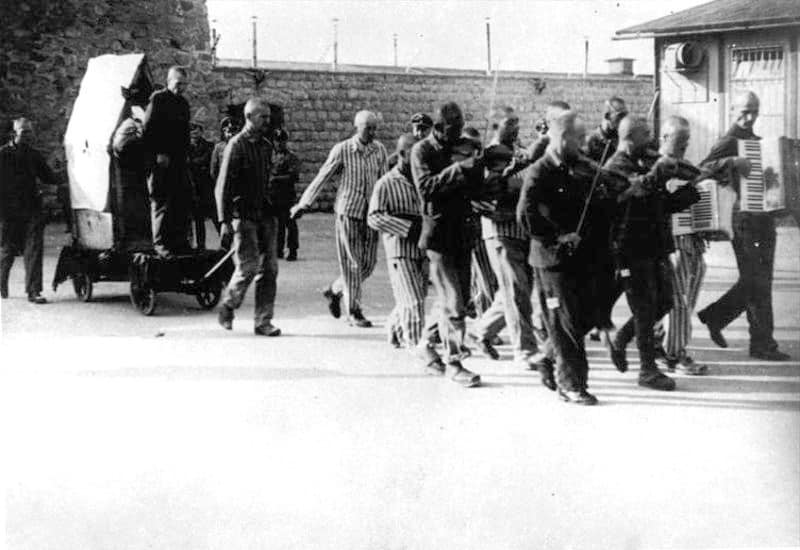
The Australian Hellenic Choir then sang a number of memorable tunes from their impressive Greek repertoire. Their melodic rendition of Never on Sunday was greeted with great applause.
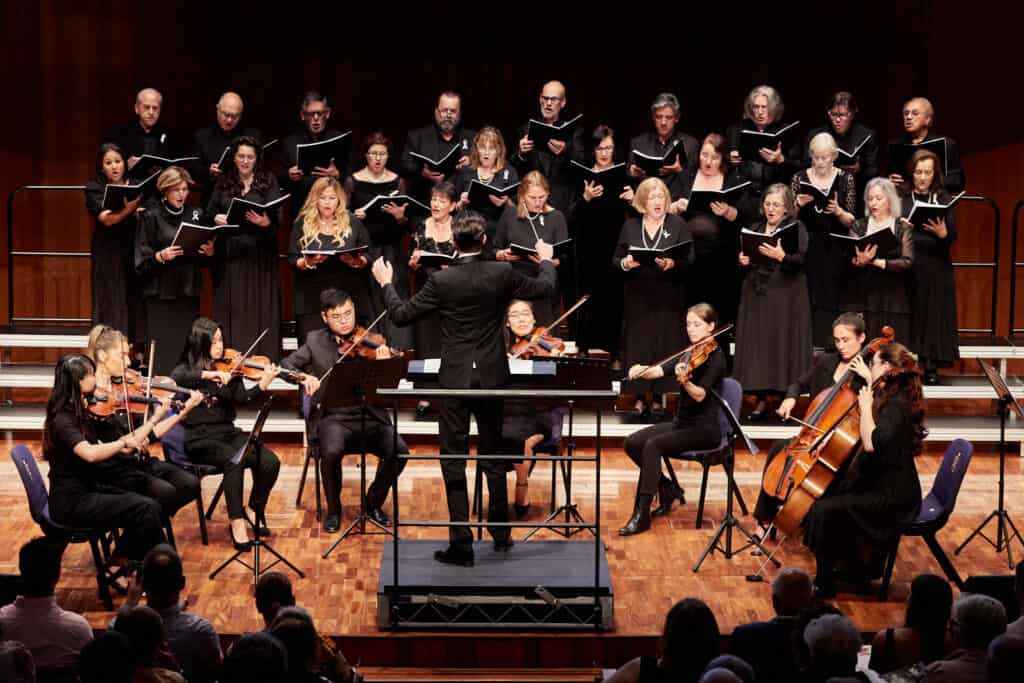
But it was the finale that everyone came to hear: the Ballad of Mauthausen.
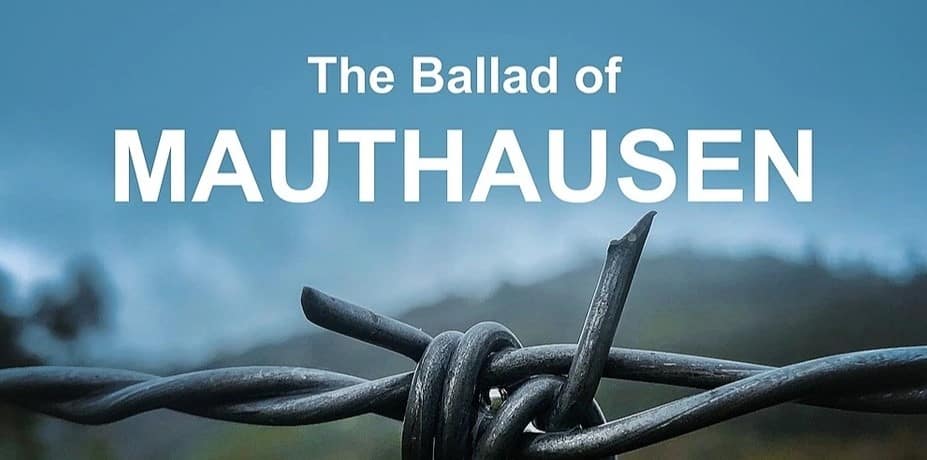
Return to Mauthausen – the Abyss of Evil
The concentration camp at Mauthausen was one of the first massive concentration camps built by the Nazis in early 1938 following Germany’s annexation of Austria, and the last to be liberated by the Allies. Situated outside of Linz it was a veritable polyglot of ethnicities and religions, including Spanish, Soviet, Bulgarian, Greek, Romanian, Hungarian, Polish, Dutch and Italian prisoners and other ‘undesirables’. The Jewish inmates bore a particular stigma.
The Mauthausen concentration camp quickly acquired a reputation for its degrading and inhumane treatment of prisoners. Murder and sadistic brutality had become a way of life for prisoners, many of whom were forced to work the granite quarries that were used to build Hitler’s monumental works. They were literally worked to death in hellish conditions. Many simply committed suicide to escape.
That all changed when on May 5, 1945 American forces liberated the camp.
As fate would have it, life and death at Mauthausen was recorded by a young Greek prisoner who would go on to become arguably Greece’s greatest playwright.
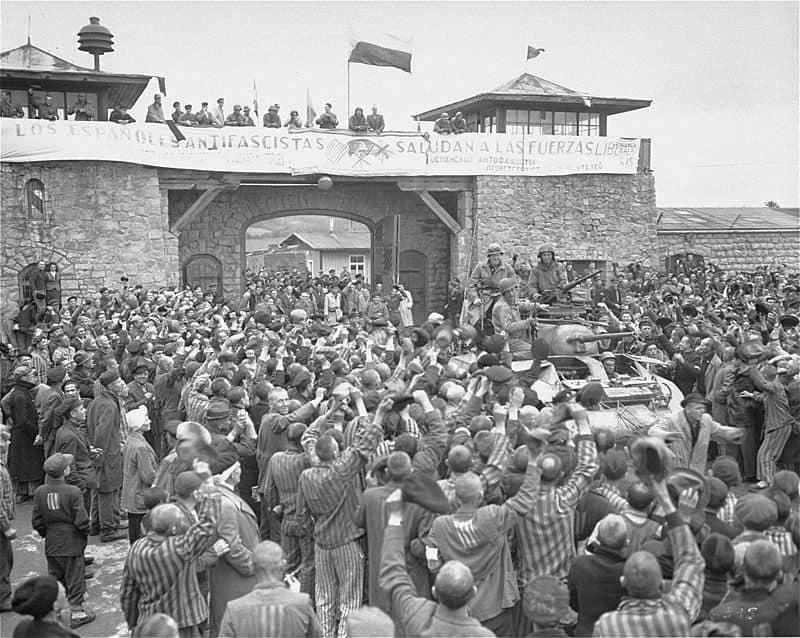
Iakovos Kambanellis, a young poet from Naxos, had been sent to Mauthausen in 1942 after unsuccessfully trying to flee Nazi-occupied Greece. Twenty years later, he recorded his haunting experiences in the concentration camp in a book, simply called Mauthausen, starting with the moment of liberation:
"On the fifth of May, a little before noon, a huge American tank, black with smoke and battle-scarred, broke down the gate of Mauthausen and entered the grounds. The soldiers looked at us confused, proud, sorrowful. They were wise to stay up there, on top of their tanks. They had saved themselves from so many battles. They'd never have saved themselves from our joy."
The “inestimable experience in hell” always haunted Kambenellis who once wrote:
"It was Mauthausen that defined me as a man, I am still a man of the camp."
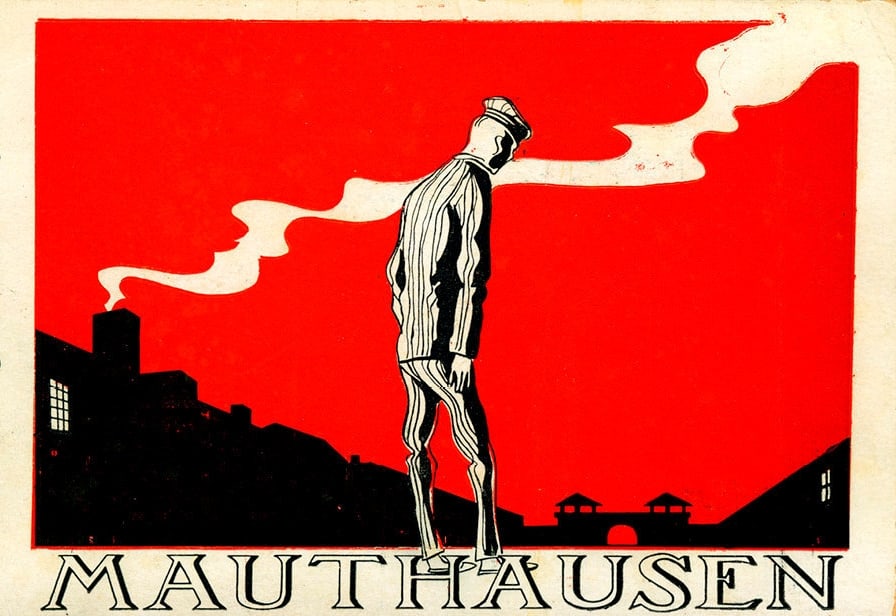
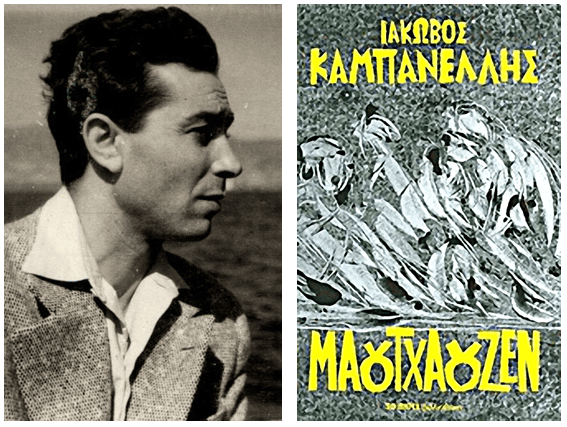
At a recent exhibition held in Athens in his honour, the Greek Culture Minister, Dr Lina Mendoni, said of Kambenellis:
“As a survivor of Mauthausen, he became a tireless proponent of the restoration of democracy, drawing inspiration and themes from this struggle for this important works, which were imbued with global human values.”
But it was a cycle of four poems which Kambanellis wrote and which his friend, the great composer, Mikis Theodorakis, set to music that resulted in the "Mauthausen Trilogy", also known as "The Ballad of Mauthausen", which has been described as the most beautiful musical work ever written about the Holocaust and, possibly, Theodorakis’ best work.
As Comerford notes, both the book and the music were born in an “incendiary political and cultural milieu in Greece”. Just days after its first performance, all music by Theodorakis was banned from Greek state radio and in April 1967 a military junta seized power in Greece as the fascists tried to silence the voices of dissent.
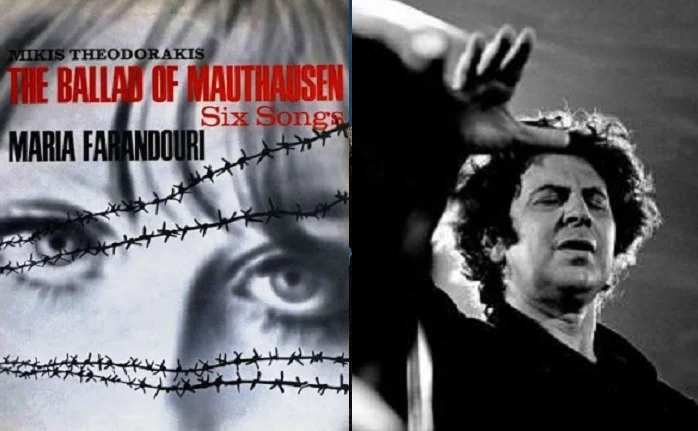
As James Tsolakis (the President of the Australian Hellenic Choir) explained, the choir’s creative musical director, Leon Vitogiannis, managed to create a choral arrangement of the song cycle which was previously performed as a solo, most notably by the legendary Maria Farandouri, Theodorakis’ first interpreter of the Ballad.
According to Tsolakis:
“What better way to explore this music than with a choir whose members are personally connected with the history?”
Indeed, the two choirs combined harmoniously to present a work renowned for its symbolism and acts of resistance and bringing together the collective genius of Kambenellis and Theodorakis.
The first song performed by the two choirs, who both sang in Greek, was Άσμα Ασμάτων (or “Song of Songs”), which opens with the sublime words:
“How beautiful is my love
With her day dress
And a little comb in her hair
Nobody knew how beautiful she is”
Kambanellis had fallen in love with a young Lithuanian Jewish woman, Janina Rimkoute, and the young man desperately searches for his beloved, asking of his fellow inmates:
“Young girls of Mauthausen, young girls of Belsen, have you seen my love?”
They respond - in words that evoke chilling memories - that they have seen her standing on a frozen square with a number on her white arm and a yellow star on her heart.
According to Mikis Theodorakis’ biographer, Gail Holst, the composer’s use of harmonious melodies and rhythms, combined with “sheer beauty of line”, marked a high point in his compositional development.
Extermination through hard labour
The second song in the cycle, O Αντώνης, tells the story of Andonis, a Greek prisoner who tries to help a Jewish inmate working in the rock quarry at the base of the so-called "Stairs of Death". Prisoners were forced to carry roughly-hewn blocks of stone – often weighing as much as 50 kilograms – up the 186 steep and uneven stairs, one prisoner behind the other. As a result, many prisoners would collapse out of sheer exhaustion only to be brutalized by the Nazi guards. Those too ill or too weak to work were sent away for extermination.
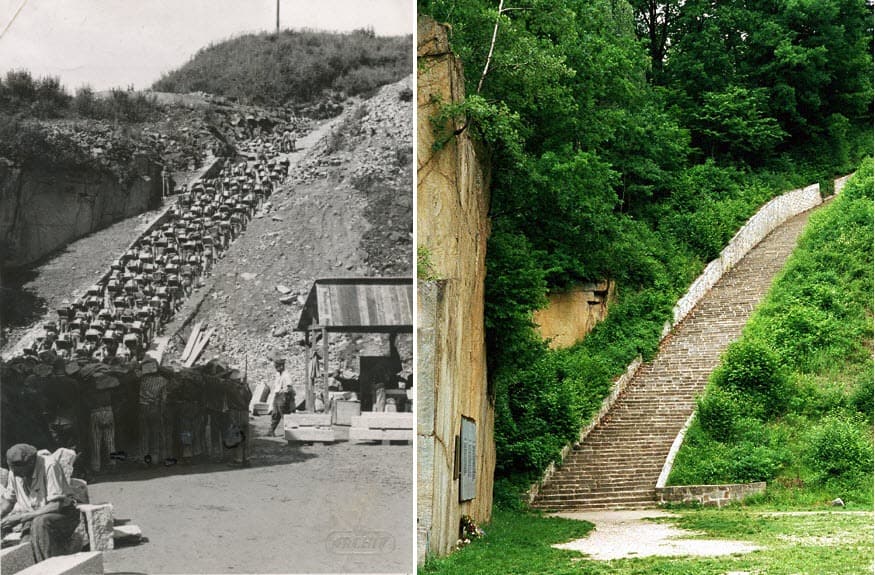
The song begins:
There on the wide staircase
the staircase of tears
in Wiener Graben’s deep stone-
quarry of cries and lamentation
Jews and partisans stroll by
Jews and partisans fall down
a rock they carry on their back
a rock, a cross of death
Undeterred, Andonis helps his friends when the Nazi guard intervenes and in order to punish the Greek instructs him to carry a boulder twice as heavy. Andonis defiantly lists an even heavier stone and confronts the guard: “My name is Andonis and if you are a man come here on the marble threshing floor”.
The epic lyrics, bolstered by the superb Theodorakian melody, have enshrined the heroism of Andonis whose name would become synonymous with resistance to cruel authority.
The third song, Ο Δραπέτης (The Fugitive), is the story of a hapless prisoner who escapes the camp but cannot find refuge in the hostile surroundings. He is re-captured and executed.
In the last song, Όταν τελειώσει Ο Πόλεμος (When the War Ends), the poet romanticizes about the prospect of returning to love and normalcy, holding hands, kissing at the gate, making love in the gas chamber until the grim shadow of death is finally lifted from the camp:
“Girl with the terrified eyes,
Girl with the frozen hands,
Forget me not when the war is over.”
Sophia Richman, in her book “Mended by the Muse: Creative Transformations of Trauma,” wrote that the song cycle of Mauthausen, as a “requiem for Holocaust victims” raised the consciousness of all Greeks and through its sublime melodic lines, extended harmonies and rhythms, forced listeners to ask, “what happened to our Jews?”
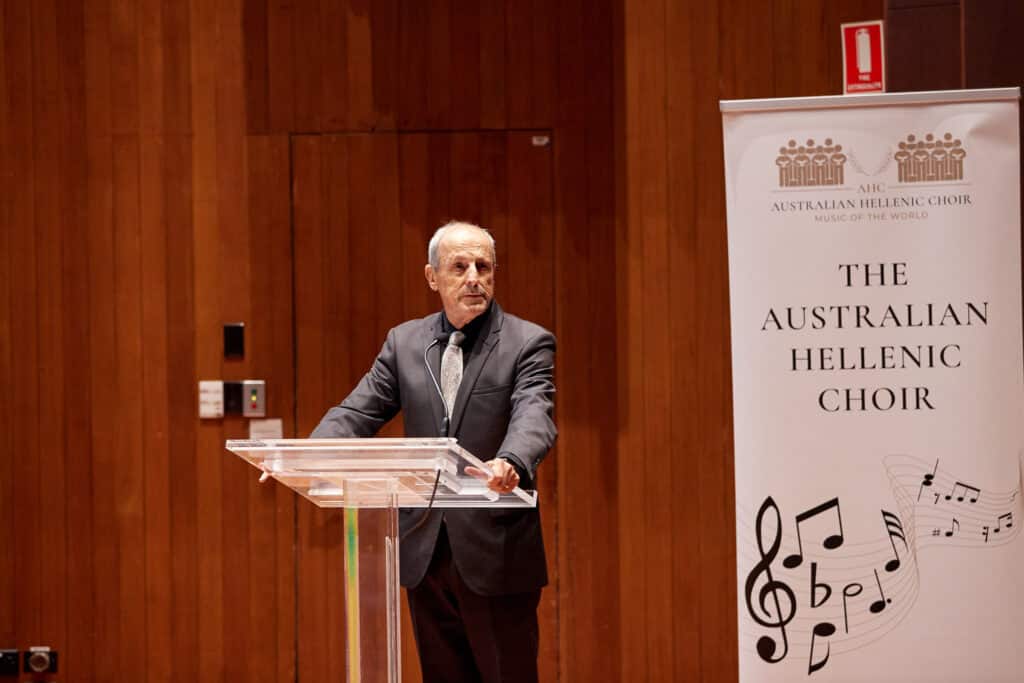
As Vic Alhadeff reminded the audience, in the case of Greece there were approximately 60,000 Jews living in the country when war broke out with the majority in the northern city of Thessaloniki. Of these, some 50,000 were deported to Auschwitz and other concentration camps. Greece’s Jewish population was essentially destroyed by the Nazis.
On May 7, 1995, on the occasion of the 50th anniversary of the liberation of the camp Mikis Theodorakis and his leading singer, Maria Farandouri, returned to Mauthausen, now a place of remembrance, and performed in an outside concert. Thousands of people were present, many of them survivors, including Kampanellis and the Nazi hunter (and Mauthausen survivor), Simon Wiesenthal.
Wiesenthal’s speech was pointed:
“National Socialism, which wanted to dominate and enslave the world, was de facto a composition of hatred and technology. Hate is something terrible. Hatred preceded the millionfold Nazi crime. We must despise these crimes, not only because they have murdered our families, but because they have crushed human dignity.”
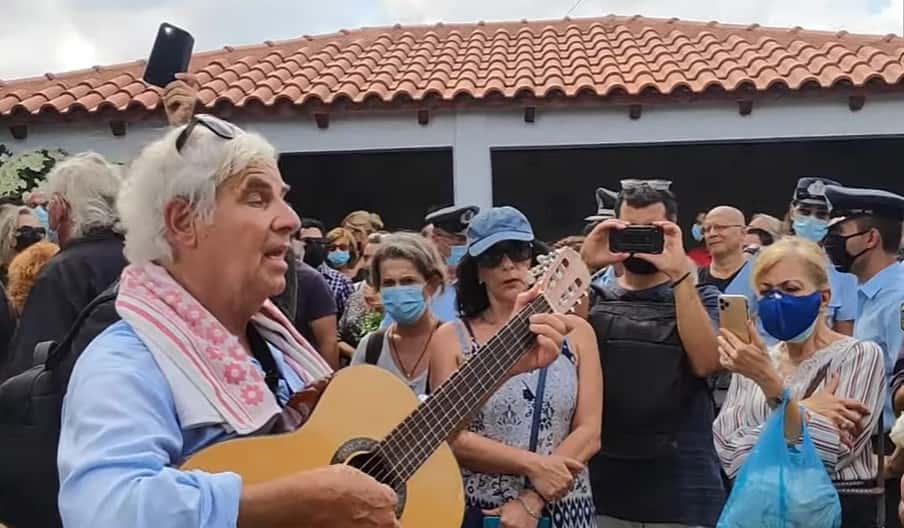
Indeed, no one knows how beautiful my beloved was.
The Ballad of Mauthausen is an enduring testament to the extraordinary resilience of the human spirit in the darkest of times. We must never forget.
George Vardas is the Arts and Culture Editor and Secretary of the Australian Hellenic Council (NSW)

